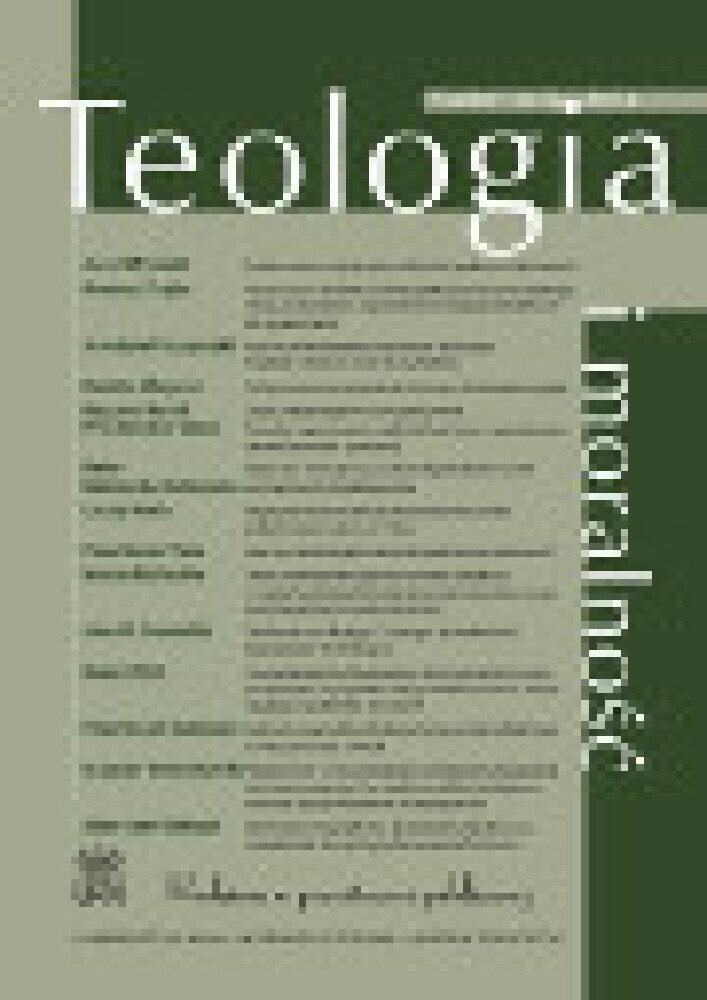Abstract
The starting point for the analysis of this article are sociological studies carried out by the Diocesan Pastoral Care of Families in Poland entitled : The Picture of Polish Family As a Social Institution in the Light of Empirical Research (2011-2012). The aim of this study was to answer the question: To what extent is the present family (good) wealth for a society?
First, there is an attempt to define the concept of family and civil society. Then, based on the material gathered from the research, the image of contemporary Polish family is shown.
It turned out that the Polish family is aware that it is wealth (good) to the public. It tries to turn in the development of civil society. An obstacle on the road, however, is the current government policy that is perceived by the surveyed families as not so much effective in contributing to the development of the country. These families do not believe in the effectiveness of self-organizing civil society based on the principle of subsidiarity.
References
Bokajło W., Koperek J., Obraz rodziny polskiej jako instytucji społecznej w świetle badań empirycznych (2011-2012), Raport z projektu badawczego: Rodzina bogactwem (dobrem) dla społeczeństwa, Watykan 2012.
Jan Paweł II, Adhortacja apostolska Familiaris consortio, Watykan 1981.
Jan Paweł II, Encyklika Centisimus annus, Watykan 1991.
Jan Paweł II, Encyklika Evangelium vitae, Watykan 1995.
Jan Paweł II, Encyklika Veritatis splendor, Watykan 1993.
Jan Paweł II, List apostolski Mulieris Dignitatem, Watykan 1988.
Mariański J., Kościół Katolicki a rozwój społeczeństwa obywatelskiego, „Rocznik Lubuski” t. 29, cz. 1, 2003, s. 113-134.
Mariański J., Kościół Katolicki w społeczeństwie obywatelskim. Refleksje socjologiczne, Lublin 1998.
Novak M., Chrześcijaństwo, kapitalizm i demokracja, w: M. Novak, A. Rauscher, M. Zięba, Chrześcijaństwo, demokracja, kapitalizm, Poznań 1993, s. 9-49.
Ogrodziński P., Pięć tekstów o społeczeństwie obywatelskim, Warszawa 1991.
Papieska Rada ds. Rodziny, Rodzina i prawa człowieka, w: W trosce o dobro małżeństwa i rodziny. Dokumenty Papieskiej Rady ds. Rodziny, t. 1, red. M. Brzeziński, Lublin 2010, s. 287-310.
Possenti V., Wyzwania demokracji liberalnej, „Społeczeństwo” 6(1996) nr 3, s. 429-445.
Ratzinger J., Znaczenie wartości religijnych i etycznych w społeczeństwie pluralistycznym, w: Naród – wolność – liberalizm. Kolekcja „Communio”, t. 9, red. L. Balter, Poznań 1994, s. 137-197.
Shils E., Co to jest społeczeństwo obywatelskie?, w: Europa i społeczeństwo obywatelskie. Rozmowy w Castel Gandolfo, red. K. Michalski, Kraków 1994, s. 9-53. Stolica Apostolska, Karta Praw Rodziny, Watykan 1983.
Szacki J., Wstęp. Powrót idei społeczeństwa obywatelskiego, w: Ani książę, ani kupiec: obywatel. Idea społeczeństwa obywatelskiego w myśli współczesnej, red. J. Szacki, Kraków-Warszawa 1997, s. 16-20.
Tyszka Z., Rodzina w świecie współczesnym – jej znaczenie dla jednostki i społeczeństwa, w: Pedagogika społeczna, red. T. Pilch, I. Lepalczyk, Warszawa 2003, s. 137-154.
License
All rights reserved
